CNC machines, or Computer Numerical Control machines, are automated manufacturing tools controlled by computer programs. They are widely used for tasks such as cutting, drilling, milling, and turning. These machines have revolutionized modern manufacturing by enabling high-precision, high-efficiency production.
How Does a CNC Machine Work
At the core of a CNC machine is a computer system that reads pre-programmed instructions (usually written in G-code). These commands guide the movement of tools across multiple axes, allowing the machine to perform complex operations with extreme accuracy. Unlike manual machining, CNC machines operate with minimal human intervention, offering consistent results and faster production.
Key Components of a CNC Machine
Controller: The brain of the machine that interprets code and directs motion
Spindle: The rotating component that holds cutting tools or the workpiece
Tool Changer: Automatically switches tools for multi-step machining
Machine Bed/Table: Holds and secures the material during processing
Drive System: Uses motors and lead screws to move components precisely
Types of CNC Machines
CNC Milling Machines: Perform angled cuts and complex shaping
CNC Lathes: Ideal for cylindrical or round components
CNC Routers: Commonly used for wood, plastic, and light metals
CNC Plasma/Laser Cutters: Efficiently cut metal sheets and plates
CNC EDM Machines: Shape hard metals using electrical discharge
Applications Across Industries
CNC machines are vital in many sectors:
Aerospace: Precision components for aircraft and spacecraft
Automotive: Engine parts, molds, and custom components
Medical: Surgical tools and prosthetic components
Electronics: Miniature precision parts for devices
Industrial Equipment: Large, custom-made machinery parts
Benefits of CNC Machining
High precision and repeatability
Efficient for large and small batch production
Shortens turnaround time
Minimizes human error
Suppots complex 3D and multi-axis operations
Why CNC Matters for Modern Manufacturing
In today’s fast-paced industrial landscape, CNC machining offers the flexibility and scalability needed to keep up with innovation. Whether it’s for rapid prototyping or full-scale production, CNC machines deliver consistent, high-quality results.
Conclusion
CNC machines are the foundation of modern manufacturing. If you’re looking to boost production efficiency, reduce errors, and maintain precision, investing in CNC machining or partnering with a CNC service provider is a smart, forward-thinking move.

